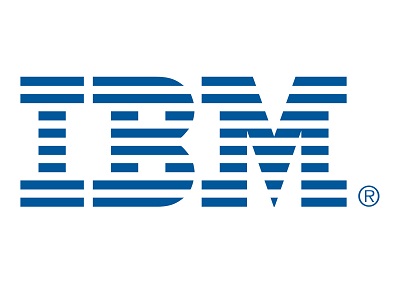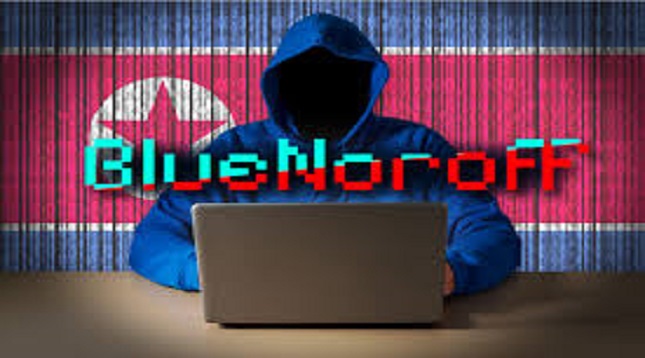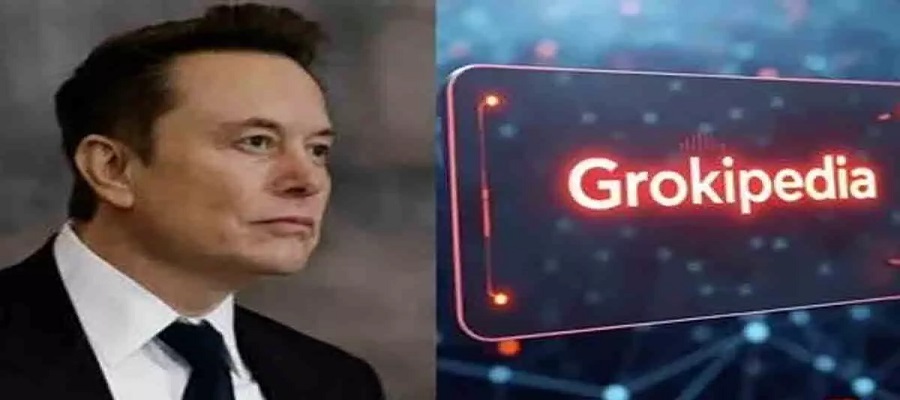News
CBN Plans Biometric IDs for Banks’ Customers

The Central Bank of Nigeria (CBN) is to introduce a unique identity data for the banking industry, a customer due diligence solution that will enable financial institutions identify their customers and ascertain relevant information pertinent to doing financial business with them, Nigeria CommunicationsWeek has learnt.
The initiative is different from an earlier plan to collaborate with the National Identity Management Commission (NIMC) on the matter.
In this case, the apex bank after the work of a subcommittee headed by Godwin Emefiele, group CEO of Zenith Bank, will harmonise the account numbers such that everybody will be uniquely identified.
It offers protections both to the customer and the bank.
Tunde Lemo, deputy governor (Operations) of the CBN, said the Bankers’ Committee had taken a decision on Unique Identity solution.
According to him, “they are working very hard on the biometric-based unique identification portal that would be available to all banks, so that they can have a unique account database that would enable them have across the entire industry.”
“I believe that the idea of the NIMC is very good, it is something that we all have to migrate to in the future, but until that is done, we want to have something that the industry can use and that is what we are doing. Today, the need for the banking industry to have unique data base is very compelling.” He added.
Nigeria CommunicationsWeek gathered that when this is put in place all financial institutions must verify the identity of individuals wishing to conduct financial transactions.
This is intended to enable the bank form a reasonable belief that it knows the true identity of each customer. It will also include reasonable and practical risk-based procedures for verifying the identity of each customer.
News
BlueNoroff Targets Eecutives on Windows and MacOS Using AI-driven Tools

At the Security Analyst Summit in Thailand, Kaspersky’s Global Research and Analysis Team (GReAT) unveiled the latest BlueNoroff APT activity through two highly targeted malicious campaigns ‘GhostCall’ and ‘GhostHire’. The ongoing operations have been targeting Web3 and cryptocurrency organisations across India, Turkiye, Australia and other countries in Europe and Asia since at least April 2025.

BlueNoroff, a subdivision of the notorious Lazarus group, continues to expand its signature ‘SnatchCrypto’ campaign, a financially motivated operation which targets crypto industries worldwide. The newly described GhostCall and GhostHire campaigns employ new infiltration techniques and customised malware to compromise blockchain developers and executives. These attacks affect macOS and Windows systems as primary targets and are managed through a unified command-and-control infrastructure.
The GhostCall campaign focuses on macOS devices, beginning with a highly sophisticated and personalised social engineering attack. The attackers reach out via Telegram, impersonating venture capitalists and in some cases using compromised accounts of real entrepreneurs and startup founders to promote investment or partnership opportunities. The victims are invited to fake investment meetings on phishing sites mimicking Zoom or Microsoft Teams during which they are prompted to “update” their client to fix an audio issue, this action downloads a malicious script and deploys a malware infection on the device.
“This campaign relied on deliberate and carefully planned deception. Attackers replayed videos of previous victims during staged meetings to make the interaction appear like a real call and manipulate new targets. The data collected in this process is then used not only against the initial victim but also exploited to enable subsequent and supply-chain attacks, leveraging established trust relationships to compromise a broader range of organisations and users,” comments Sojun Ryu, security researcher at Kaspersky GReAT.
Attackers deployed seven multi-stage execution chains, four which were previously unseen, to distribute a range of new customised payloads, including crypto stealers, browser credential stealers, secrets stealer, and Telegram credential stealers.
In the GhostHire campaign the APT targets blockchain developers by posing as recruiters. Victims are tricked into downloading and running a GitHub repository containing malware, presented as a skill assessment. GhostHire shares its infrastructure and tools with the GhostCall campaign, but instead of using video calls, it focuses on approaching hands-on developers and engineers through fake recruitment. After initial contact, victims are added to a Telegram bot that delivers either a ZIP file or a GitHub link, along with a short deadline to complete the task. Once executed, the malware installs itself on the victim’s machine, customised for the operating system.
The use of generative AI has enabled BlueNoroff to accelerate malware development and refine its attack techniques. The attackers introduced new programming languages and added additional features, complicating detection and analysis tasks. It further enables the actor to manage and expand its operations, increasing both the complexity and scale of attacks.
“Since its previous campaigns, the threat actor’s targeting strategy has evolved beyond simple cryptocurrency and browser credential theft. The use of generative AI has significantly accelerated this process, enabling easier malware development with reduced operational overhead.
“This AI-driven approach helps to fill the gaps in available information, enabling more focused targeting. By combining compromised data with AI’s analytical capabilities, the scope of these attacks has expanded. We hope our research will contribute to preventing further harm,” comments Omar Amin, senior security researcher at Kaspersky GReAT.
News
Moniepoint Unveils Nigeria’s First Informal Economy AI Chatbot, As FG Lauds Fintech Giant for Powering Business Growth Across the Country

Moniepoint Inc, Africa’s leading business payments and personal banking servicing platform, has launched “M”, Nigeria’s first artificial intelligence-powered chatbot dedicated to demystifying the informal economy, while earning commendations from the Federal Government for its decade-long commitment to driving financial inclusion and business growth across Africa’s most populous nation.

Speaking at the launch of the second edition of Nigeria’s Informal Economy Report powered by Moniepoint, Vice President Kashim Shettima represented by Dr. Jumoke Oduwole, Minister of Industry, Trade and Investment noted that the informal economy lies at the heart of Nigeria’s story of resilience, creativity, and enterprise, from market traders to artisans, service providers, and young digital entrepreneurs.
“Millions of Nigerians power commerce daily in ways that are unseen yet indispensable to our economy. This report gives an important window into the challenges and opportunities within the sector. It provides a stronger foundation for inclusive, evidence-based policymaking.
“The Tinubu-led administration places high priority on the informal sector, which has remained central to Nigeria’s economic resilience. I commend Moniepoint for its decade-long contribution to financial inclusion, supporting millions of informal businesses across Africa”, she said.
To bring the report’s insights to life, “M,” a friendly, AI-powered guide that helps users explore and understand Nigeria’s informal economy. Built on cutting-edge Large Language Model (LLM) technology, M provides conversational and easy-to-understand responses to complex queries. It represents Moniepoint’s belief that technology should serve people, especially the everyday entrepreneurs who keep the economy moving. “M” is designed to make data on small businesses and informal trade accessible, useful, and actionable for everyone from policymakers and researchers to journalists and the general public.

In his welcome remarks, Babatunde Olofin, Managing Director, Moniepoint MFB, noted that the Bank’s focus lies in providing millions of these informal operators with the tools they need to thrive sustainably.
“This year’s report dives deeper into unemployment, taxation, savings behavior, and business operations within the informal economy, and what we’ve found paints a picture of both resilience and fragility. These insights remind us that the informal economy is not just a tool for survival but a living ecosystem of innovation and adaptation.
“We are determined to help shape a more inclusive and sustainable Nigeria, not just for today, but for generations yet unborn. The informal economy is not the shadow of our nation’s progress, it is its pulse. Our job is to make sure it beats stronger”, he said.
The launch event also served to mark a significant milestone as Moniepoint commemorates 10 years of service to now over 10 million active businesses and individuals, processing more than one billion transactions monthly and facilitating payments exceeding $22 billion. The company aims to strengthen public-private collaboration in building a more data-driven, inclusive, and digitized economy aligned with Nigeria’s Renewed Hope Agenda of achieving a $1 trillion economy by 2030.
Founded in 2015 by Tosin Eniolorunda and Felix Ike, Moniepoint has grown from building financial solutions and infrastructure for Nigeria’s major banks to becoming the nation’s largest business payments platform and leading merchant acquirer, providing an all-in-one banking platform offering payments, banking, credit, business tools, and cross-border payment solutions.
Hon. Ayodele Olawande, Minister, Federal Ministry of Youth Development represented by Mrs. Ebiho Agun, Technical Adviser commended Moniepoint for its commitment to understanding and illuminating the dynamics of a sector that, though often overlooked, but remains the backbone of our national economy.
“While Moniepoint has aptly drawn attention to the vast potential of the informal economy, largely powered by youth, it is clear that realizing this potential requires strong synergy among government, private sector players, financial institutions, and development partners.
“Together, we must move from insight to action, designing and implementing strategies that will enable informal enterprises to access finance.”
During a panel session which was moderated by Vice President, Corporate Affairs, Moniepoint Inc, Didi Uwemakpan with the theme: Building an inclusive and sustainable economy for Nigeria, the panelists which included Uche Uzoebo, MD/CEO, Shared Agent Network Expansion Facilities, SANEF, Chinasa Collins-Ogbuo, Head, Inclusion for All Initiative, Enhancing Financial Innovation & Access (EFInA); Charles Odii, Director-General, Small and Medium Enterprises Development Agency of Nigeria and MD, Moniepoint Microfinance Bank were emphatic about the need to increase access to finance, markets, and other structured interventions for the informal economy.
Speaking to its partnership with Moniepoint on the report, DG, SMEDAN expressed satisfaction that the report shows real progress with more businesses formalizing, accessing finance, and using digital tools, while acknowledging some challenges that persist, especially around rising costs and access to affordable credit.
“We are working with our partners and under this administration’s economic agenda to close these gaps: free CAC registration for 250,000 small businesses, a partnership with SEC to list 1,000 SMEs on the capital market, and new shared industrial hubs that make it cheaper to run a business. We are also working with state governments to deepen access to affordable finance and complement efforts of the Federal Government to create a regulatory environment that supports the growth of small businesses,” he said.
Some of the dignitaries who attended the event include Special Adviser to the President on Job Creation & MSME, Temitola Adekunle-Johnson, Senior Special Assistant to the President on Digital Media and Emergency Management (OVP), Ahmed Ningi, Registrar/ Chief Executive, The Chartered Institute of Bankers of Nigeria, Akin Morakinyo, Mohammed Bagudu, Special Adviser on Stakeholder Management and Finance, Federal Inland Revenue Service (FIRS), Deputy Director, Digital Economy, National Information Technology Development Agency (NITDA) Dr. Amina Sambo-Magaji, National Coordinator of the Office for Nigerian Digital Innovation (ONDI), and Investment Officer. IFC. Meissa Gueye.
Moniepoint’s transformative impact has earned recognition on the Financial Times’ Africa’s Fastest-Growing Companies list, TIME100 Most Influential Companies list, and CNBC’s World’s Top Fintech Companies. The Central Bank of Nigeria honored Moniepoint as Financially Inclusive Fintech of the Year, while the company received SME Microfinance Bank of the Year awards at the BusinessDay Banks & Other Financial Institutions (BAFI) Awards in both 2024 and 2025.
News
Musk Launches Grokipedia to Rival Wikipedia

Elon Musk’s company xAI has launched Grokipedia to compete with online encyclopedia Wikipedia, which he has accused of ideological bias.

Elon Musk
The site dubbed version 0.1 had more than 885,000 articles by Monday evening, compared to Wikipedia’s more than seven million in English.
The launch came with the promise of a newer version, 1.0, which Musk said would be “10X better” than the current live site, which he claimed is already “better than Wikipedia.”
“The goal of Grok and Grokipedia.com is the truth, the whole truth, and nothing but the truth. We will never be perfect, but we shall nonetheless strive towards that goal,” he said on X following the launch.
Grokipedia’s release had been marked down for the end of September, but was delayed by the US entrepreneur to “purge out the propaganda,” Musk said in a separate X post.
Musk has been a regular critic of Wikipedia.
In 2024, he accused the site of being “controlled by far-left activists” and called for donations to the platform to cease.
In August, he said, “Wikipedia cannot be used as a definitive source for Community Notes, as the editorial control there is extremely left-biased.”
The content of Grokipedia is generated by artificial intelligence (AI) and the generative AI assistant Grok.
A Grokipedia article about Musk states that the Tesla and SpaceX CEO has “influenced broader debates on technological progress, demographic decline, and institutional biases, often via X,” amid what the page says are “criticisms from legacy media outlets that exhibit systemic left-leaning tilts in coverage.”
Created in 2001, Wikipedia is a collaborative encyclopedia managed by volunteers, largely funded by donations, and whose pages can be written or edited by internet users.
“Unlike newer projects, Wikipedia’s strengths are clear: it has transparent policies, rigorous volunteer oversight, and a strong culture of continuous improvement,” a spokeswoman from Wikimedia Foundation told AFP in an email.
It claims the site is written to inform “billions of readers without promoting a particular point of view.”
When asked about the launch of Grokipedia, the spokeswoman said Wikimedia is “still in the process of understanding how Grokipedia works.”
She highlighted that Wikimedia “is – and always will be – human.”
“This human-created knowledge is what AI companies rely on to generate content; even Grokipedia needs Wikipedia to exist.”
The birth of Grokipedia has been welcomed by several right-wing figures, including hardline Russian ideologue Alexander Dugin, who described the article about him as “neutral, objective, accurate,” whereas Wikipedia’s page, according to him, is “totally biased and defamatory.”

 Telecom3 days ago
Telecom3 days agoUNICEF, GSMA Unite with Partners to Launch Africa Taskforce on Child Online Protection to Safeguard Children in the Digital Age

 Broadcasting3 days ago
Broadcasting3 days agoNCC Calls for Professional Guidelines on Software Use, Support for Copyright Enforcement

 General News3 days ago
General News3 days agoFG to Train One Million Youths under TVET for Entrepreneurship, National Development

 E-Business3 days ago
E-Business3 days agoNOTAP to Crackdown on Unregistered Technologies in Nigeria

 Broadcasting2 days ago
Broadcasting2 days agoMultiChoice to Delist from JSE after Canal+ Takeover

 E-Financial3 days ago
E-Financial3 days agoSEC Puts Nigeria’s Cryptocurrency Transactions in One Year @ Over $50Bn

 E-Financial2 days ago
E-Financial2 days agoLotus Bank Drags 45 Banks to Court over Alleged ₦1.1Bn Fraudulent Withdrawals

 E-Financial3 days ago
E-Financial3 days agoPolaris Bank restates support for SMEs, commissions EveryDay Supermarket in Yenagoa















